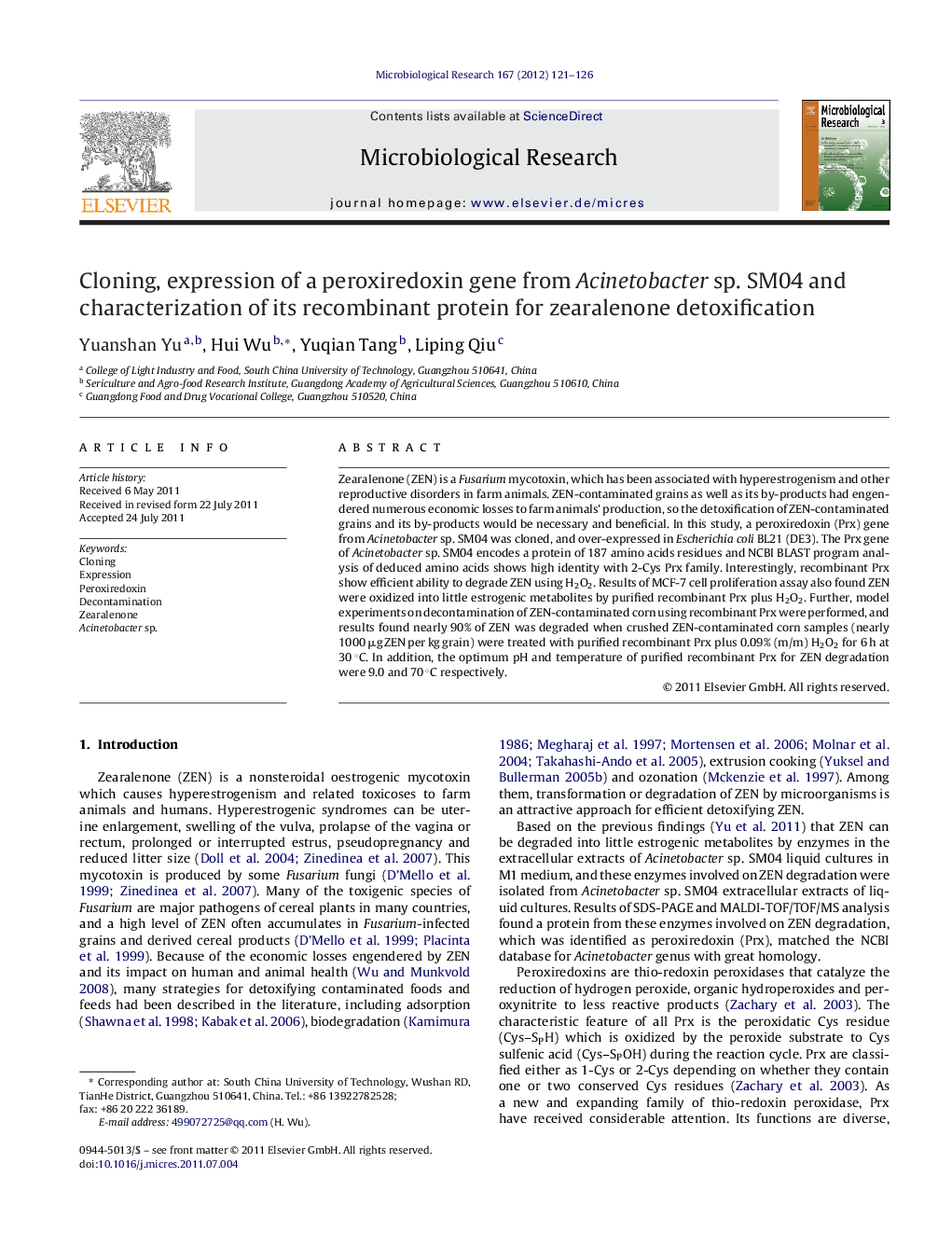| کد مقاله | کد نشریه | سال انتشار | مقاله انگلیسی | نسخه تمام متن |
|---|---|---|---|---|
| 2092414 | 1081789 | 2012 | 6 صفحه PDF | دانلود رایگان |

Zearalenone (ZEN) is a Fusarium mycotoxin, which has been associated with hyperestrogenism and other reproductive disorders in farm animals. ZEN-contaminated grains as well as its by-products had engendered numerous economic losses to farm animals’ production, so the detoxification of ZEN-contaminated grains and its by-products would be necessary and beneficial. In this study, a peroxiredoxin (Prx) gene from Acinetobacter sp. SM04 was cloned, and over-expressed in Escherichia coli BL21 (DE3). The Prx gene of Acinetobacter sp. SM04 encodes a protein of 187 amino acids residues and NCBI BLAST program analysis of deduced amino acids shows high identity with 2-Cys Prx family. Interestingly, recombinant Prx show efficient ability to degrade ZEN using H2O2. Results of MCF-7 cell proliferation assay also found ZEN were oxidized into little estrogenic metabolites by purified recombinant Prx plus H2O2. Further, model experiments on decontamination of ZEN-contaminated corn using recombinant Prx were performed, and results found nearly 90% of ZEN was degraded when crushed ZEN-contaminated corn samples (nearly 1000 μg ZEN per kg grain) were treated with purified recombinant Prx plus 0.09% (m/m) H2O2 for 6 h at 30 °C. In addition, the optimum pH and temperature of purified recombinant Prx for ZEN degradation were 9.0 and 70 °C respectively.
Journal: Microbiological Research - Volume 167, Issue 3, 20 March 2012, Pages 121–126